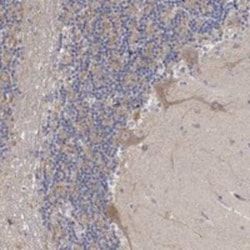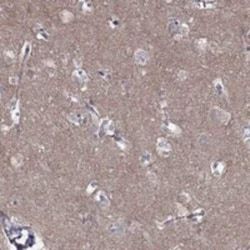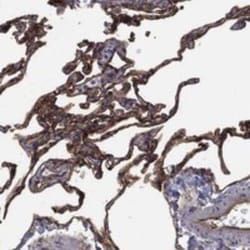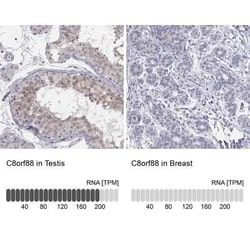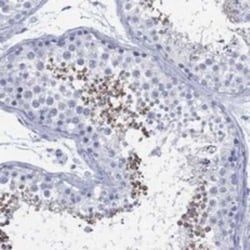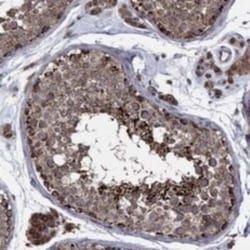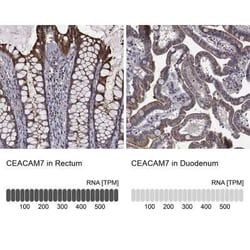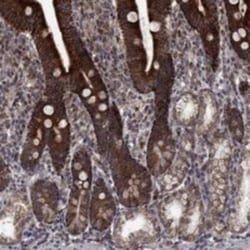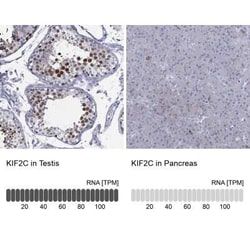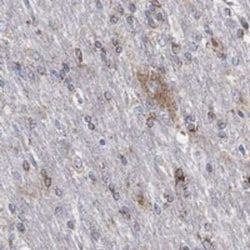CEACAM7 Rabbit anti-Human, Polyclonal, Novus Biologicals™
Rabbit Polyclonal Antibody
Manufacturer: Fischer Scientific
The price for this product is unavailable. Please request a quote
Antigen
CEACAM7
Applications
Immunohistochemistry, Immunohistochemistry (Paraffin)
Conjugate
Unconjugated
Host Species
Rabbit
Research Discipline
Cancer
Formulation
PBS, pH 7.2, 40% glycerol
Gene ID (Entrez)
1087
Isotype
IgG
Purification Method
Affinity purified
Dilution
Immunohistochemistry 1:200 - 1:500, Immunohistochemistry-Paraffin 1:200 - 1:500
Classification
Polyclonal
Form
Purified
Regulatory Status
RUO
Target Species
Human
Gene Alias
Carcinoembryonic antigen CGM 2, Carcinoembryonic antigen CGM2, Carcinoembryonic antigen gene family member 2, Carcinoembryonic antigen related cell adhesion molecule 7, CEA, CEACAM 7, CGM 2, CGM2
Immunogen
This antibody was developed against Recombinant Protein corresponding to amino acids: PVTLNVRYESVQASSPDLSAGT
Primary or Secondary
Primary
Content And Storage
Store at 4°C short term. Aliquot and store at -20°C long term. Avoid freeze-thaw cycles.
Description
- CEACAM7 Polyclonal antibody specifically detects CEACAM7 in Human samples
- It is validated for Immunohistochemistry, Immunohistochemistry (Paraffin)
